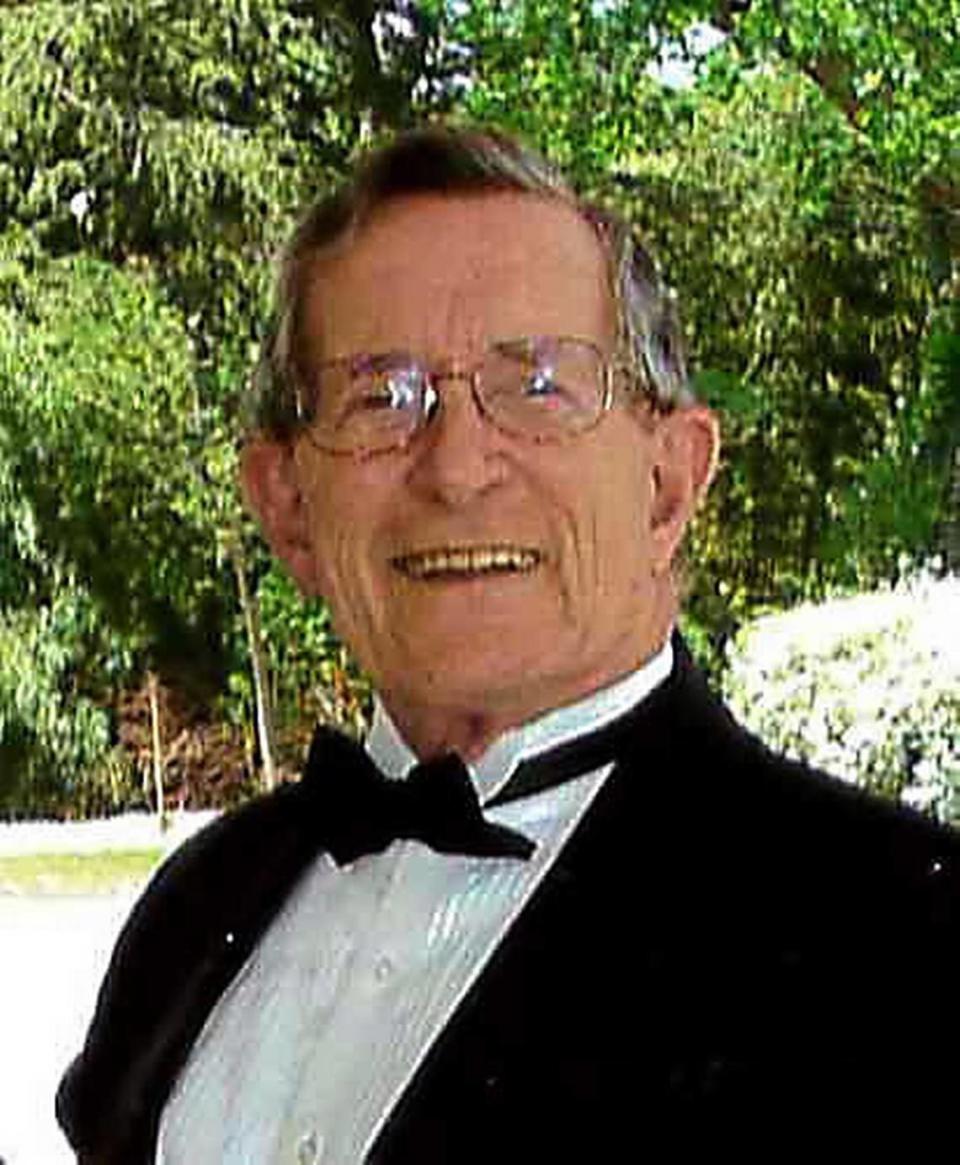For 100 years, Alex Hegenbart ‘really embraced life.’ Now his music will live on.
If anyone needs proof that Alex Hegenbart was destined to be a survivor, they need only hear the story about how he avoided conscription into the German army during World War II.
As a young man, Hegenbart and his family were living in the Netherlands at the time of the German occupation. They were vehemently opposed to collaborating with the Nazis. So when Hegenbart was pulled from a food line and ordered to report to an army medical appointment, he immediately visited his own doctor.
The doctor wrote a letter stating that Hegenbart had tuberculosis and then dispensed some very undoctorly advice: He instructed Hegenbart to smoke as many cigarettes as he could, drink black coffee and stay up all night before his army medical appointment.
With the doctor’s letter in hand, Hegenbart went to the appointment, coughing and with blood pressure that was “off the charts,” his daughter, Elizabeth Kirk, said.
The German army’s medical staff stamped his letter “rejected” and rushed him out the door so they wouldn’t catch what he had.
Hegenbart’s storied, 100-year-long life came to an end on April 26. An accomplished musician, choral director and composer, the longtime Belmont resident directed the music department at Gaston College for years.
He retired from that job when he was about 80 so that he could care for his wife, Ingeborg, who was suffering from lymphodema, a disease that caused painful swelling of her legs and feet.
“He loved, loved, loved teaching at Gaston College,” his daughter said. “Frankly I think he hated to stop — even at 80.”
Making a big mark in music
Hegenbart, whose mother was Jewish, never talked much about his family’s World War II years, his daughter said. But somehow he and his parents managed to survive the Nazi occupation of the Netherlands.
A year after the war ended, he met Ingeborg, a woman who would later go on to a distinguished career in international banking — and become his wife of 61 years.
In 1948, the couple moved from the Netherlands to the U.S., where Hegenbart worked briefly in furniture factories before pursuing his real passion: music.
He served as choir director at several Charlotte-area churches and, in the 1960s, began composing choral music. He published many pieces, the first and most well-known of which – Simeon’s Prayer – is often sung in churches on the Sunday after Christmas.
For a sense of what music meant to him, look at the cats and dogs that kept him and his wife company over the decades. There was Brahms, Beethoven, Mozart, Liszt, Ravel — and the list goes on. Yes, they were all named after composers.

Thoughtful and kind, Hegenbart had quiet ways of showing his family members how much he loved them. Kirk remembers a day from her childhood when she was home sick from school. Her father bought her a coloring book and crayons that day — “a little treat because I was sick.”
Years later, he filled a spare bedroom in his house with an elaborate model train set for his grandchildren to enjoy when they visited.
“Too stubborn to get sick”
His mind remained lively even into his 90s, his daughter said. He would often watch National Geographic on television, and would later tell his family what he had learned about the cosmos.
“He loved to learn new things,” Kirk said.
Although he smoked for nearly 60 years, starting at age 12, he somehow managed to remain remarkably healthy, his daughter said. To stay in good shape, he took vitamin and mineral supplements and ran in place for 15 minutes each day.
“The family said he was too stubborn to get sick,” Kirk said.
When, at age 98, he became ill with a urinary tract infection, he refused to succumb to the illness.
“He’d say, ‘I can’t go because there’s too much work that God has for me to do,’ ” his daughter recalled.
Even at age 100, he wasn’t ready to die, Kirk said. When he finally passed away last month, he left behind three children, five grandchildren and 14 great grandchildren. But through his music, his teaching and his ministry, Kirk said, his influence will continue to live on for years to come.
“He really embraced life,” she said.
